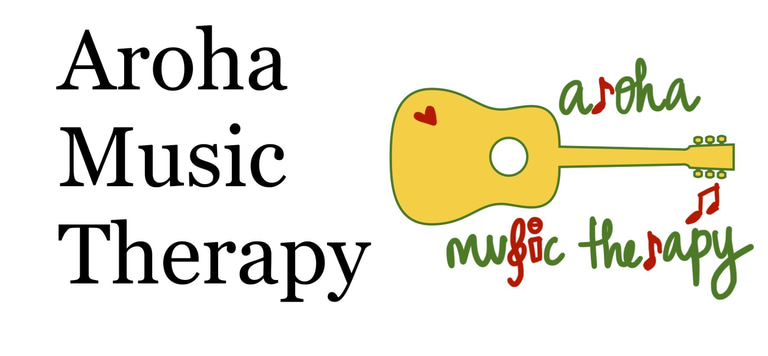Adults
At Aroha, we offer individual and group sessions for adults. Music therapy offers a unique way for adults to achieve personal health goals, express themselves, improve social connections, manage stress, process emotions. Whether it’s listening to music, playing instruments or singing, a licensed music therapist at Aroha will tailor the sessions to each individual’s needs. Music can reach areas of the brain that are not always accessible through words alone, making it a powerful tool for cognitive stimulation, emotional regulation, pain management, and social engagement. Adults can use music therapy to address enhance personal growth, improve their quality of life, and specific life challenges.


Who can benefit from music therapy?
Chronic Illnesses:
Adults with chronic conditions such as cancer, heart disease or multiple sclerosis benefit from music therapy for emotional support, pain relief, and symptom management during treatment and recovery.Caregivers and Family Members:
At Aroha, we also facilitate group music therapy sessions that can support caregivers and family members of those with chronic illnesses or mental health conditions. These sessions can help foster emotional resilience, reduce caregiver burnout, and promote self-care.General Well-Being and Personal Growth:
Even adults who are not facing specific psychological or medical issues can benefit from music therapy. Our therapists can facilitate music-based interventions to improve boost self-esteem, provide opportunities for emotional/creative expression, enhance overall life satisfaction, and emotional well-being, by promoting relaxation, social interaction, and self-expression.Grief and Trauma:
Music therapy is effective for those coping with grief, loss, or trauma. Using music, we provide an outlet for difficult emotions and support emotional healing through creative expression.Mental Health Conditions:
We provide music therapy for adults struggling with anxiety, bipolar disorder, depression, stress, and PTSD. It helps improve mood, reduce stress, and provide an outlet for emotional expression.Neurological Disorders:
Adults with neurological conditions, such as Alzheimer’s, Parkinson’s disease, or stroke, can benefit from music therapy to improve cognitive abilities, emotional well-being, memory, and motor coordination.Physical Disabilities and Rehabilitation:
At Aroha, we facilitate music therapy for physical rehabilitation to boost coordination after accidents, improve motor skills, provide opportunities for emotional expression, promote movement, and surgeries, or strokes. It can also help with pain management and improving overall physical functioning.
How can they benefit from services?
Cognitive Stimulation and Memory Enhancement:
For adults with neurological conditions such as Alzheimer’s disease or stroke, our therapists can help stimulate memory and cognitive function. Listening to familiar music, singing old songs, and engaging in music-based games can improve concentration, recall, and problem-solving skills.Emotional Expression and Regulation:
Music therapists offer a safe space for adults to express complex emotions. Whether through singing, songwriting, or playing an instrument, our therapists can help individuals articulate feelings they might struggle to express verbally. We also help with emotional regulation, providing a non-verbal way to manage stress, anxiety, and anger.Improved Social Interaction and Connection:
Group music therapy sessions foster socialization and community-building, which are especially important for adults dealing with isolation, mental health challenges, or life transitions. Our group sessions can also provide opportunities for communication for individuals with speech or language impairments.Mental Health and Stress Reduction:
Music has been shown to significantly reduce levels of anxiety and depression. It helps activate the brain’s reward centers, releasing dopamine and endorphins, which can improve mood and reduce feelings of sadness or isolation. Music therapy is often used as a part of the treatment plan for depression, anxiety disorders, and stress management.Pain Management and Physical Rehabilitation:
Music therapy is effective in managing both chronic and acute pain. By promoting relaxation and reducing stress, our therapists help lower pain perception and improves the body’s ability to heal. It’s also used in physical rehabilitation to increase mobility, balance, and motor skills through rhythm and movement.Self-Esteem and Personal Growth:
Using music therapy, therapists at Aroha can increase self-confidence and self-esteem by allowing adults to engage in creative self-expression. Achieving musical goals—whether it’s learning to play an instrument, composing a song, or simply learning to relax through music—can empower individuals and promote a sense of accomplishment.Spiritual and Existential Support:
Music is often used in spiritual contexts to help adults find meaning, comfort, and a sense of peace, particularly during times of grief, illness, or life transitions. Our therapists can connect individuals with their spiritual practices.
